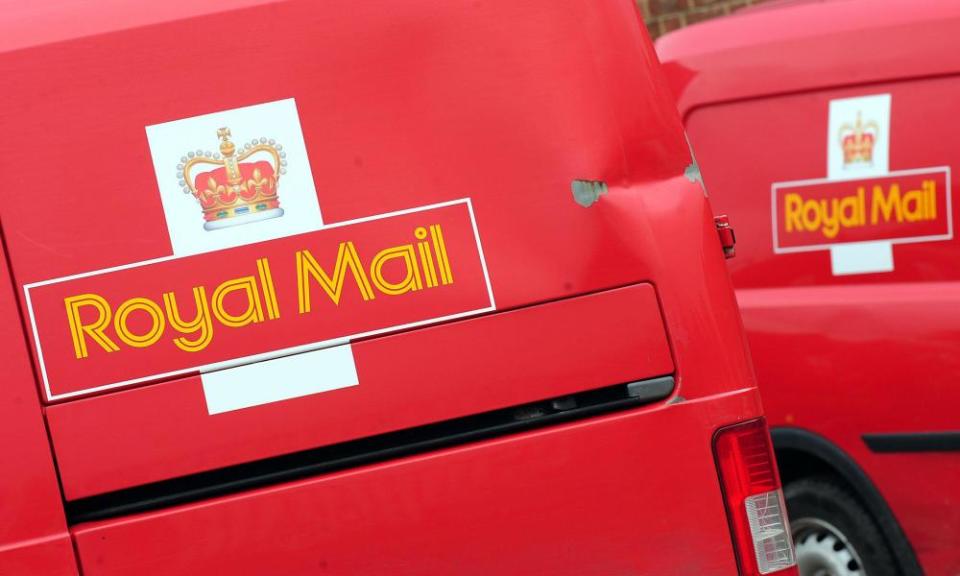Royal Mail faces revolt over boss's pay – but the board is free to do nothing

Orna Ni-Chionna, head of remuneration at Royal Mail, is “very disappointed” that 70% of voting shareholders think her pay report should be filed in the bin, along with the junk mail. The company will reflect “very carefully” on their views. Then it will consult with them, again “very closely”. Then it won’t change a thing.
The last part wasn’t spelled out, naturally, but it’s how the plot usually works when the resolution in front of shareholders is purely advisory. Even when two-thirds of investors are unhappy, the board is free to do nothing. The system is silly.
On Moya Greene’s £914,000 payoff, it’s probably true that Royal Mail’s hands are tied. The outgoing chief executive negotiated a contract with an automatic parachute payment when she was hired in the pre-privatisation days of 2010 and the terms can’t be undone without her say-so. Blame Sir Vince Cable, business secretary at the time, or a former underling.
But Ni-Chionna’s crew are directly in the firing line for the other issue that excited the rebels. New chief executive Rico Back’s basic salary of £640,000 will be almost £100,000 more than Greene’s. Ah, says the company, he’ll get a smaller pension allowance so his overall “fixed cash” package is the same. That’s doesn’t really wash, however, because bonuses and share incentives are set as multiples of salary and those multiples have been left unaltered. Thus Back’s maximum jackpot could be about £250,000 more than Greene’s. There is no good explanation for the inflation.
Yet it’s slightly odd that Royal Mail’s pay report, judged by the number of revolting shareholders, is deemed the worst ever from a FTSE 100 company. The salaries and potential bonuses are enormous by ordinary standards, of course, but you’ll find far worse elsewhere. When Persimmon’s absurd incentive scheme awarded £100m to chief executive Jeff Fairburn, the housebuilder still scraped a 51% majority – even though the chairman and pay chief had resigned in embarrassment for their role in the fiasco.
Therein lies another absurdity of the advisory voting system. Fund managers often find it easier to object on points of principle than unleash fury when the worst examples of executive greed are staring them in the face. It makes no sense.
Sports Direct investments are mostly own-goals
Sports Direct’s corporate reputation is greatly improved, according to a third-party survey, so please don’t spoil Mike Ashley’s delight by pointing out that it’s easier to rise from the depths. Now, when are the next stock-picker-of-the-year awards? In that competition, a booby prize surely awaits.
Sports Direct has written down the value of its near-30% stake in Debenhams by £85m, reflecting the crash in the beleaguered department store chain’s share price. The sum is equivalent to slightly more than half Sports Direct’s underlying pretax profits last year.
Why take these share punts? The official reasoning is that “strategic investments are in an integral part of the group’s strategy”, yet the grand total of Sports Direct’s commercial relationship with Debenhams amounts to two store-in-store concessions (there used to be nine). As for the supposed “active dialogue” with management teams, it sounds more like a monologue at Debenhams. “I will be smashing into them about why they don’t do anything Sports Direct suggests,” said Ashley on Thursday.
A past investment in rival JD Sports was very profitable, it should be added. On the other hand, Goal Soccer Centres, where Sports Direct owns almost 19%, could be the next own-goal: the five-a-side football outfit issued a profits warning on Thursday that deflated its share price for a fifth. Meanwhile the 11% stake in the unlisted House of Fraser is illiquid and hard to value as control passes between two Chinese firms.
Ashley owns almost two-thirds of Sports Direct, so outsiders know complaints will achieve little. Buying shares in other companies is “in our DNA”, says finance director John Kempster. Yes, that’s the problem.
Fox/Disney/Comcast/Sky thriller nears its final act
The great Fox/Disney/Comcast/Sky thriller may be drawing to a close without a final twist. Comcast has withdrawn from the fight for 21 Century Fox, conceding, in effect, that the bidding had become too hot at $71bn (£55bn). The bulk of Rupert Murdoch’s media empire is thus destined for Disney, assuming US regulators approve.
That still leaves the scrap for Sky, which is now Comcast’s focus. The owner of NBC Universal is currently in the lead with its £14.75-per-share cash offer, worth £26bn, and the open question is whether Fox will return with a better bid. To judge by Sky’s share price, just a whisker over £15, the market has its doubts.
If so, this saga will resolve with Comcast getting control of Sky and Disney taking Fox, either with or without the 39% stake in Sky. Investors in both bidders will be relieved. The sums of debt being sprayed around already look enormous.

 Yahoo Finance
Yahoo Finance 